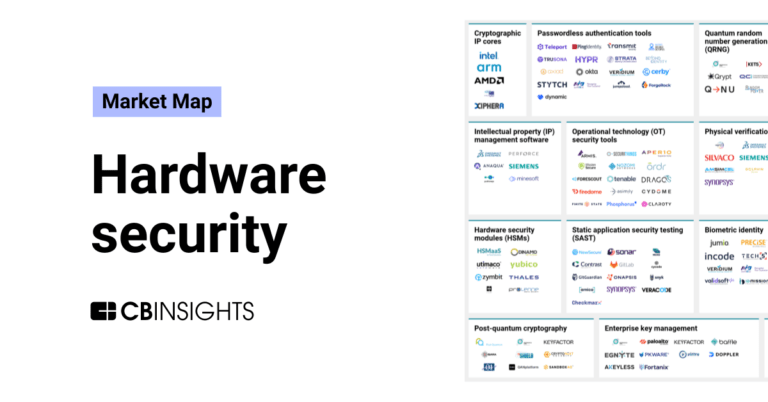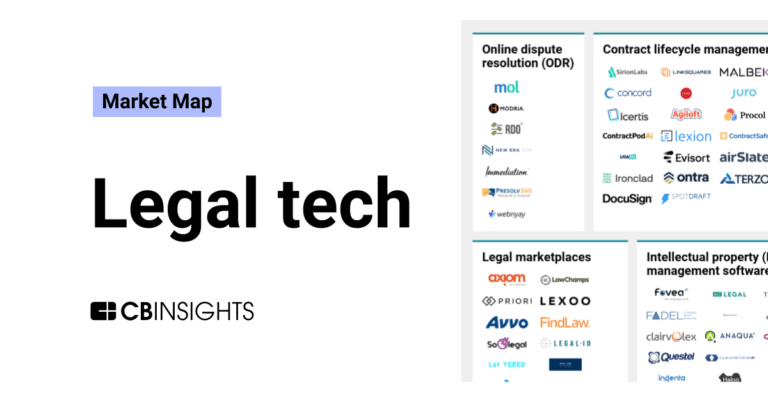
PatSnap
Founded Year
2007Stage
Series E | AliveTotal Raised
$352.32MValuation
$0000Last Raised
$300M | 4 yrs agoRevenue
$0000Mosaic Score The Mosaic Score is an algorithm that measures the overall financial health and market potential of private companies.
-70 points in the past 30 days
About PatSnap
PatSnap focuses on providing intelligence and patent analytics for various industries. Its main offerings include a platform that aids in the ideation to commercialization process by leveraging AI to analyze patents, R&D insights, and competitive landscapes. PatSnap serves sectors such as agriculture, chemicals, consumer goods, life sciences, automotive, oil and gas, professional services, aviation, aerospace, and education. It was founded in 2007 and is based in Beijing, China.
Loading...
ESPs containing PatSnap
The ESP matrix leverages data and analyst insight to identify and rank leading companies in a given technology landscape.
The intellectual property (IP) management software market enables businesses to streamline the process of organizing and protecting their intellectual property, such as patents, trademarks, copyrights, and trade secrets. IP management software includes features such as document management, search and tracking capabilities, compliance management, and collaboration tools. It caters to enterprises an…
PatSnap named as Leader among 13 other companies, including Siemens, Dassault Systemes, and Keysight Technologies.
PatSnap's Products & Differentiators
Analytics
Patsnap Analytics is a comprehensive IP intelligence platform designed to support innovation cultures of excellence by enabling organizations to perform accurate global patent searches and analyses to help identify, protect, manage and maximize success of their technologies. Empower IP and R&D teams alike with an intuitive and user-friendly product to drive innovation and draw powerful conclusions from patent data.
Loading...
Research containing PatSnap
Get data-driven expert analysis from the CB Insights Intelligence Unit.
CB Insights Intelligence Analysts have mentioned PatSnap in 3 CB Insights research briefs, most recently on Feb 20, 2024.

Feb 20, 2024
The hardware security market map
Oct 10, 2023
The legal tech market mapExpert Collections containing PatSnap
Expert Collections are analyst-curated lists that highlight the companies you need to know in the most important technology spaces.
PatSnap is included in 3 Expert Collections, including Unicorns- Billion Dollar Startups.
Unicorns- Billion Dollar Startups
1,257 items
Market Research & Consumer Insights
734 items
This collection is comprised of companies using tech to better identify emerging trends and improve product development. It also includes companies helping brands and retailers conduct market research to learn about target shoppers, like their preferences, habits, and behaviors.
Drug Discovery Tech Market Map
221 items
This CB Insights Tech Market Map highlights 220 drug discovery companies that are addressing 12 distinct technology priorities that pharmaceutical companies face.
PatSnap Patents
PatSnap has filed 7 patents.
The 3 most popular patent topics include:
- computer storage media
- rotating disc computer storage media
- video game storage media

Application Date | Grant Date | Title | Related Topics | Status |
|---|---|---|---|---|
11/22/2021 | 8/6/2024 | Rotating disc computer storage media, Computer storage media, 3D imaging, Image processing, Video game storage media | Grant |
Application Date | 11/22/2021 |
|---|---|
Grant Date | 8/6/2024 |
Title | |
Related Topics | Rotating disc computer storage media, Computer storage media, 3D imaging, Image processing, Video game storage media |
Status | Grant |
Latest PatSnap News
Oct 29, 2024
This new AI tool wants to make it faster to design a product breakthrough [Images: Sylverarts/Getty Images, aleksandarvelasevic/iStock/Getty Images Plus] Imagine you have a space exploration company, and you need to design a suit optimized for traveling to Mars. That’s a tall order, and it’s going to require a lot of research—likely starting with a few key questions: What materials should I use? How do I make the suit regulate temperatures? What about blocking UV light and keeping dust out? Has anyone else tried to do this before? Now, there’s an AI bot trained to find those answers for you. Eureka is a new tool debuting today on Patsnap , and it’s designed to streamline the very first stages of product development. Patsnap (as in, “patents in a snap”) is an AI-powered patent intelligence company that was founded in 2007 with the goal of helping companies research intellectual property (IP) and scientific findings. If, for example, a company was working on developing a new jetpack , Patsnap could retrieve existing jetpack patents, summarize them, and even keep track of them in case new ones emerge. These tools help companies ensure that they aren’t infringing on others’ IP while absorbing the most up-to-date innovations in their field. In 2021, Patsnap reached unicorn status by surpassing a $1 billion valuation , and, in 2023, it hit $100 million in annual recurring revenue . The company boasts a big list of clients that includes companies like Disney, PayPal, Tesla, Bose, and Huawei. Eureka will be Patsnap’s first AI-powered tool dedicated to research and development (R&D), and it could have a major impact on how businesses explore new inventions—and how quickly those products can be brought to market. Subscribe to the Design Newsletter.The latest innovations in design brought to you every weekday An LLM made specially for product design The foundation of Patsnap’s various AI-powered tools is its unique language learning model (LLM), called PatsnapGPT. It’s trained specifically for product development and IP research, pulling more than two billion news articles, 200 million patents, 254 million chemical structures, and other domain-specific information to help inform the invention process. In May, Patsnap introduced its AI assistant, Hiro , who can answer questions and hold a dialogue similarly to ChatGPT, but in response to specific questions about IP and R&D. According to Frazer Kearl, Patsnap’s senior product manager, there are two main reasons that Patsnap invests in its own LLM and chatbot rather than partnering with a larger AI company, like Claude or OpenAI: data security and response accuracy. First, Patsnap complies with data privacy laws including the EU’s General Data Protection Regulation (GDPR) and AI Act , as well as the California Consumer Privacy Act (CCPA) , and customer user data is not utilized for model pre-training or retraining. This assures clients that their sensitive data won’t be used against their permission in any way. “Then, in terms of functionality, we’re able to generate better responses through our AI technology, because it is trained specifically for the scenarios in our domain,” says Kearl. “The reinforcement learning is done via experts in the field that are specific to industries of our customer base, and it’s very much focused on those tasks.” With Eureka, Patsnap is essentially dialing that specificity up a notch or two. In an exclusive demo with Fast Company, Kearl demonstrated how the feature could help a product developer bring a novel product concept to life, starting from a macro-level query and moving all the way to a high-resolution idea. [Image: Patsnap] An AI product design assistant Eureka has several different features to help a product developer make that jump. To start, there’s a simple Q&A dialogue section with Hiro, which looks almost identical to a ChatGPT or Claude prompt box. Here, a user might ask their most broad question; for example, What is the latest on space suit technology? Then, Hiro will suggest follow-up questions to help narrow the search scope. Once the user replies—let’s say, “more about life support systems”—Hiro will produce a report on the overall landscape around the technology, breaking down the key players, what the trends in the space look like, and even how much of it is being produced on a yearly basis. “All of these answers are being pulled from our data sets,” says Kearl. “Since being founded in 2007, we’ve been able to curate these specific data sources—whether they be patents, scientific literature, VC investments, market sizes, investments from sort of government bodies—so it’s ready for [Hiro] to retrieve. That means the responses that it gives are much more useful because it’s not doing that ‘ad-hocly’ and trying to go out to the internet to find the latest news article.” After a researcher has digested Hiro’s wide-reaching report and decided on a narrower scope of study, Eureka’s next stage, called Tech Mind, helps users formalize the problem they’re looking to solve commercially. In this case, a user might enter the prompt, What materials could be used to make space suits lighter? Pulling from PatsnapGPT’s database, Hiro will then reply with a summary of several different options and their merits (in this case, it suggests aerogel fabrics and aluminum-lithium alloys, for starters). The program will suggest application cases and scenarios, as well as further parameters to narrow the field of study even further. Off to the side, an “Expand Your Knowledge” bar lets users dig deeper into the sources used for more information. advertisement All of this background research is synthesized in Eureka’s final step, called Find Solutions. Here, the user takes everything they’ve found so far and explains to Hiro the precise problem they’re looking to solve. That might be something like, I want to significantly reduce the weight of space suits by introducing aerogel composites while maintaining the thermal effectiveness of the suit. The software then produces multiple actionable solutions that can be tested in the lab, including specific plans laying out how to tackle the in-lab testing. To perfect the Mars suit, Hiro suggests trying out a graded aerogel-metal composite insulation (among several other options). Like the Tech Mind step, all of the AI’s sources and its specific problem-solving methods are laid out so that users can check whether they agree with Hiro’s reasoning or not. “If for whatever reason, the user says, ‘Hey, that looks a bit suspicious, or a bit too much like the magic bullet, let me go and double check what’s going on in it,’ then they can go ahead and do that,” Kearl says. “We don’t try to obfuscate or hide any of the AI’s thinking from the user, because ultimately, our goal is to effect outcomes for their R&D.” Future uses Essentially, Eureka acts as the ultimate brainstorming and researching partner for new ideas, allowing human researchers to avoid the time-consuming manual labor that comes with collecting data on an entire field. The alternative, Kearl says, is “going to a database, doing search queries, getting hundreds of results, trying to thread through those results manually ourselves, getting exhausted, probably ignoring 80% of them—which does happen more often than you would think—and then moving forward and hoping for the best.” Eureka helps product designers get started, but humans are still the ones conducting the actual testing and experimentation. If their initial concepts don’t work, they can always go back to the drawing board with more specific constraints for Hiro based on their findings. DOW Chemical Company, a chemical producer in Michigan, has been using Eureka in beta for the past several weeks. According to Scott Matteucci, capital manager for coatings, plastics, and additives, the tools help cut down on time spent searching for market trends and existing innovations “from weeks to seconds,” giving the R&D team “more time for brainstorming, experimenting in the lab, and driving our R&D forward.” Given that Eureka is just hitting the market—and the fact that commercializing a new product takes at least a year in most industries—the tool hasn’t actually been used to produce new innovations just yet. But Patsnap’s senior head of marketing Micky Teng says the tool, alongside the rest of Patsnap’s tech suite, could have a major impact on industries where turnaround times are especially important. “I think there’s such real world value to what we do with our customers, because they’re working on breakthroughs,” Teng says. “With the [COVID-19] vaccines, for example, BioNTech is one of our customers, and they worked on the Moderna vaccine. [Our customers are also working on] electric vehicles, like Rivian and Tesla, and low-emission aircraft technology. It’s the customers that are shaping the future of every industry.” ABOUT THE AUTHOR
PatSnap Frequently Asked Questions (FAQ)
When was PatSnap founded?
PatSnap was founded in 2007.
Where is PatSnap's headquarters?
PatSnap's headquarters is located at Room 2307, Tower 3, Block B, Wangjing SOHO No. 10 Wangjing Street, Beijing.
What is PatSnap's latest funding round?
PatSnap's latest funding round is Series E.
How much did PatSnap raise?
PatSnap raised a total of $352.32M.
Who are the investors of PatSnap?
Investors of PatSnap include HongShan, Shunwei Capital, CPE, SoftBank, Tencent and 7 more.
Who are PatSnap's competitors?
Competitors of PatSnap include Cypris, Wert Intelligence, International Products Generated, ResoluteAI, IPDefine and 7 more.
What products does PatSnap offer?
PatSnap's products include Analytics and 4 more.
Who are PatSnap's customers?
Customers of PatSnap include Banner Witcoff, Vyriad, TuSimple, BOA and Oxiteno.
Loading...
Compare PatSnap to Competitors

Amplified is a company that uses artificial intelligence within the intellectual property sector to assist in patent research and innovation. The company has a platform that organizes and analyzes global patent and scientific information, enabling research, documentation, and collaboration for teams. Amplified serves corporate R&D and IP teams, as well as patent law firms, by offering tools for searching and analyzing patent data. It was founded in 2017 and is based in Tokyo, Japan.
InQuartik provides intellectual property software within the patent analytics industry. The company offers tools for patent work, including automated prior art searches, patent portfolio evaluations, and monitoring of ETSI standard essential patents. InQuartik's solutions address patent litigation, due diligence, freedom to operate, and patent portfolio analysis needs. It is based in Los Angeles, California.

Relecura Inc is a company that focuses on artificial intelligence (AI) and its application in the innovation landscape, operating within the technology and AI industry. The company offers an AI platform that provides solutions for managing patents and technical data, automating competitor analysis, identifying emerging technologies and companies, and supporting strategic decision-making with real-time data. Relecura primarily sells to sectors such as corporations, law firms, technology companies, IP services firms, R&D organizations, and academic institutions. It is based in Bengaluru, India.

Dolcera is a company that specializes in intellectual property, market research, and competitive strategy. The company offers services such as patent analysis, market research, and business research, with a focus on providing insights for decision making in the intellectual property space. Dolcera primarily serves corporations in various industries, including technology, life sciences, and consumer products. It is based in San Mateo, California.
Wert Intelligence provides artificial intelligence (AI) patent search engine Keywert. The company offers an AI-based patent search system and services for patent analysis, technology licensing, IP( Internet Protocol) valuation, and technology commercialization. It serves sectors that require patent data analysis and IP-related insights. It was founded in 2015 and is based in Seoul, South Korea.
Patentfield provides AI-driven patent search and analysis within the intellectual property sector. The company offers tools for semantic patent search, data visualization, and analytical services such as patent scoring, ranking, and citation analysis. Patentfield serves professionals and organizations involved in this sector, including patent practitioners, researchers, and legal entities. It is based in Kyoto, Japan.
Loading...
